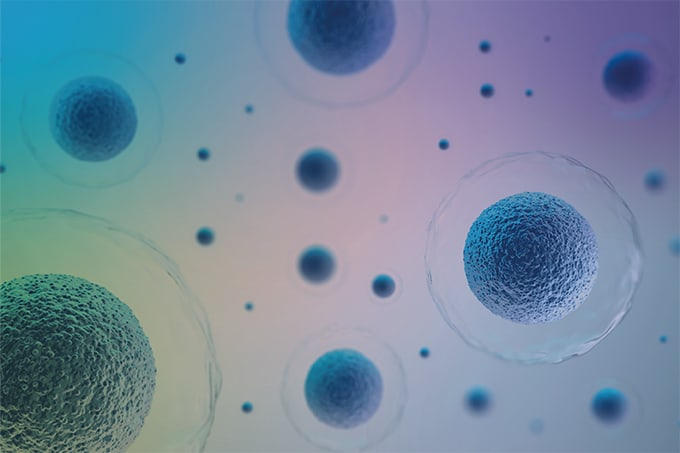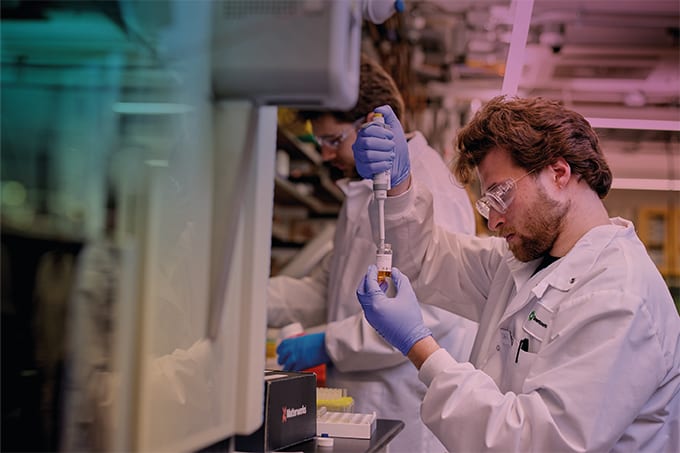ID, please. A new separation-free bacterial identification technique has shown promise in reducing the time it takes to diagnose infectious diseases. Current techniques, such as surface-enhanced Raman spectroscopy (SERS), are limited in terms of their ability to obtain a clear spectra of bacteria because of numerous overlapping sources, such as proteins in cell walls. But researchers from the Korea Advanced Institute of Science and Technology decided to pair SERS with a new deep-learning model called the dual-branch wide-kernel network (DualWKNet) to avoid time-consuming bacterial separation steps, while detecting bacteria with 98 percent accuracy. The authors hope to apply their platform to additional bacterial species in both food and clinical analyses. Link
Award-winning research (literally). Rohit Bhargava, Founder Professor of Engineering and Chemistry, and Director of the Cancer Center, at the University of Illinois (and one of our 2021 Powerlisters), was presented with the 2022 Pittsburgh Spectroscopy Award – demonstrating his outstanding achievements in the field of spectroscopy. Bhargava was recognized for his contributions to new instrumentation and technologies in the field of digital molecular pathology. His most recent work is focused on understanding and using the native molecular content of tumors and their microenvironments for improved cancer pathology. Link
Probing COVID-19 immune response. Researchers from the Institute of Infectology in Sao Paulo, Brazil, have used Fourier-transform infrared reflectance spectroscopy (micro-FTIR) to explore blood serum samples of healthy and COVID-19 positive individuals, finding that the 1702–1785 cm−1 spectral window (carbonyl C=O vibration) is a spectral marker of the degree of IgG glycosylation, which was in turn linked to the degree of COVID-19 symptom severity. “Considering the minimal and reagent-free sample preparation procedures combined to fast (few minutes) outcome of FTIR, we can state that this technology is suitable for fast screening of immune response of individuals with COVID-19,” say the authors. Link
Revolutionary ribosome research. Two researchers from the University of Houston, Yuhong Wang and Shoujun Xu, have been granted US$1.2 million from the National Institute of General Medical Sciences for new research into ribosomes. They will be developing a new type of super-resolution spectroscopy to observe exactly how ribosomes make proteins within cells – new knowledge that could potentially lead to new drug design to treat cancers and viral infections. Link
Thermo Fisher Scientific acquires Max Analytical Technologies, a producer of FTIR-based gas analysis solutions for process monitoring. Link
Single-cell Raman microspectroscopy reveals the combination of disinfectants most effective at preventing re-infection, which researchers hope will prevent overuse of antibiotics. Link
Using atomic-scale vibrational spectroscopy, researchers demonstrate isotopic imaging of 12C carbon atoms embedded in 13C graphene, noting the technique's utility in nanoisotope engineering and monitoring. Link
Researchers use quantum-memory-based time-frequency processor to bypass constraints of the Rayleigh limit and achieve optical-domain spectral super-resolution. Link




